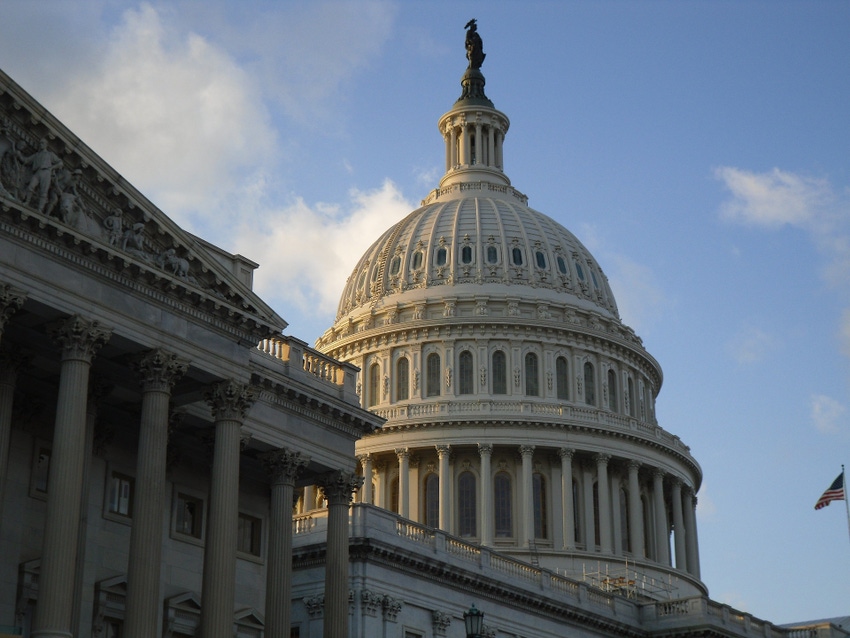Biden's fiscal year 2022 budget proposes increase for USDA
Legislative Watch: Interstate shipment legislation opposed; Infrastructure should be bipartisan; Letlow joins House Ag Committee.

Last Friday, President Biden released his fiscal year (FY) 2022 $1.522 trillion discretionary budget, which provides an 8.4% increase over fiscal 2021. It provides a 16% increase or $106 billion for non-defense spending and a $12 billion increase, or 12%, for defense spending. The budget represents some of Biden's campaign priorities of education, investments to address climate change and cancer research.
The budget proposes $27.8 billion in discretionary spending for USDA with emphasis on broadband, research and nutrition. This is a $3.8 billion increase, or 16%, over last year.
USDA highlights include:
Broadband - $65 million increase over FY '21 for the Rural e-Connectivity Program, which provides grants and loans to deploy broadband to unserved areas.
Research - provides an additional $647 million, or 20%, for USDA's research, education, and outreach program to develop "science-based and data-driven tools" and an additional $161 million to "integrate science-based tools into conservation planning in order to measure, monitor, report, and verify carbon sequestration, greenhouse gas (GHG) reduction, wildlife stewardship, and other environmental services at the farm level and on federal lands."
Nutrition - provides $6.7 billion or an increase of $1 billion for nutrition programs, including the Special Supplemental Nutrition Program for Women, Infants, and Children (WIC) to address rising food insecurity.
Small and regional meat processing - Provides an increase of $74 million for the Food Safety and Inspection Service (FSIS) to increase the capacity of small and regional meat processing facilities.
Secretary of Agriculture Tom Vilsack said: "The president’s budget provides the resources to build back better, stronger, and more resilient and equitably than ever before. This is our moment to solve big challenges by acting boldly—to close the broadband gap facing rural America; to work with farmers, ranchers and producers to transform our nation’s food system and build new markets here and abroad; to protect and manage our nation’s forests and grasslands from catastrophic wildfires; and to ensure Americans have access to healthy and nutritious food. The president’s budget commits to building back better and USDA is at heart of that historic commitment."
Vilsack testified before the House Agriculture Appropriations subcommittee this week on USDA's proposed budget.
Safe Food Coalition opposes interstate shipment legislation - The Safe Food Coalition (SFC) has informed Congressional leaders that it is opposed to legislation, the "Direct Interstate Retail Exemption for Certain Transactions Act of 2021," that would allow for the interstate shipment of state-inspected meat and poultry products.
The SFC said in a letter that expansion of state-inspected slaughter “should not come at the expense of consumer safety." The coalition urged Congress to maintain the requirement that meat and poultry shipped in interstate commerce be USDA inspected and approved and that all meat and poultry entering into commerce “be subject to reasonable inspection requirements to protect consumers."
Passing interstate shipment legislation would not help avoid meat processing capacity shortages that resulted during the COVID-19 pandemic, according to the coalition.
"The capacity of state-inspected slaughter facilities is negligible compared to the massive federally inspected facilities that were closed during the pandemic," the letter stated.
SFC members are the Center for Food Safety, Center for Science in the Public Interest, Center for Foodborne Illness Research and Prevention, Consumer Reports, Consumer Federation of America, Food and Water Watch, Stop Foodborne Illness and National Consumers League.
Infrastructure should be bipartisan - The Rebuild Rural Coalition which represents 250 agricultural and rural organizations is calling on Congress to work together to pass a bipartisan infrastructure bill that consider the needs of rural America.
In a statement released this week, the Coalition said, "As they work through negotiations, we strongly encourage a bipartisan approach that considers the unique needs of rural infrastructure - and sets aside specific funding for rural communities."
The coalition sent President Biden a letter earlier this year outlining the infrastructure needs of rural America including roads and bridges, locks and dams, railroads, electrical and water systems, agricultural research at land grant universities, broadband, healthcare and housing.
The White House this week released state-by-state fact sheets on infrastructure needs that can be accessed here.
Letlow joins House Ag Committee - Congresswoman Julia Letlow, R-La., has been appointed to serve on the House Agriculture Committee. Letlow recently won a special election in Louisiana to replace her late husband, Luke Letlow.
Source: P. Scott Shearer, who is solely responsible for the information provided, and wholly owns the information. Informa Business Media and all its subsidiaries are not responsible for any of the content contained in this information asset.
About the Author(s)
You May Also Like



